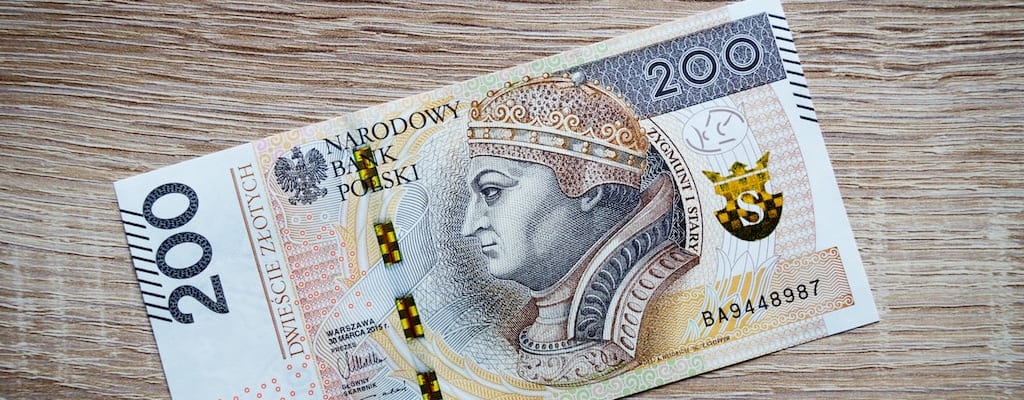chump change: Idiom Meaning and Origin
What does ‘chump change’ mean?
The idiom chump change refers to a small or insignificant amount of money, usually not worth much importance or attention.

Idiom Explorer
The idiom "good value" refers to something that is worth the money spent on it, providing a high quality or benefit relative to its cost.
The idiom "fork over" means to reluctantly give or hand over something, typically money or possessions, often under pressure or unwillingly.
The idiom "for beans" means doing something with very little value or importance. It suggests that the action or result is not worth much, similar to the low value of beans as compared to more valuable substances.
The idiom "drop in the sea" means a very small or insignificant amount in comparison to a larger whole.
The idiom "drop in the ocean" means a very small and insignificant amount compared to the overall need or problem.
The idiom "dime's worth" implies a small or insignificant value, often used to express the lack of significance or impact of something.
An idiom meaning to take shortcuts or do something in a faster or easier way, often sacrificing quality or thoroughness. It is used to describe a situation where someone tries to save time, money, or effort by finding an easier or quicker way to achieve a goal.
A Change That Speaks Volumes
The idiom "chump-change" is commonly used in American English to describe a small or insignificant amount of money. It is often used in a dismissive or derogatory manner to imply that the amount in question is not worth much or is not important. The origins of this idiom can be traced back to the early 20th century, and it has since become a popular phrase in everyday speech.
One theory suggests that "chump-change" may have originated from the slang term "chump," which means a fool or an idiot. The addition of the word "change" implies that the amount of money being referred to is so small that it is insignificant to a person of average intelligence. This suggests that the idiom may have emerged as a way to belittle or mock someone for having or offering only a small sum of money.
An alternative theory proposes that the phrase may have its roots in the gambling world. In certain card games, players are required to contribute a small amount of money, known as an "ante," to the pot at the beginning of each round. This initial contribution is typically a small sum that is insignificant compared to the potential winnings. The idiom "chump-change" could have emerged as a way to describe the small amount of money one might be willing to put into the pot without much thought or concern.
Regardless of its exact origins, "chump-change" has become firmly ingrained in the American vernacular. It is commonly used in both casual conversations and more formal settings to convey the idea of a trivial or inconsequential amount of money. Its usage and connotations can vary depending on the context and the individuals involved in the conversation.
It is worth noting that "chump-change" is not limited to its literal meaning of money. It is often used metaphorically to describe anything that is seen as insignificant or unimportant. For example, one may refer to a small task or favor as "chump-change" to suggest that it requires minimal effort or has little impact.
"chicken feed" is another idiom that is related to "chump-change." It is used to describe a small amount of money or something of little value. While "chump-change" focuses more on the dismissive or derogatory aspect, "chicken feed" emphasizes the insignificance or triviality of the amount. This idiom is commonly used in informal conversations to convey the idea that the amount being discussed is not worth much or is not important.
Similarly, the idiom "dime's worth" is also related to "chump-change." It refers to a very small amount of something or a trivial value. The "dime" in this idiom represents a small coin, symbolizing the insignificance of the amount. "Dime's worth" is often used to indicate that something has very little value or impact, similar to how "chump-change" is used.
The idiom "chump-change" is a widely used phrase in American English to describe a small or insignificant amount of money. Its origins can be traced back to early 20th century slang and may have emerged from the idea of belittling someone for having or offering only a small sum of money. It is also related to the idioms "chicken feed" and "dime's worth," which both emphasize the insignificance or triviality of the amount in question. Whether used literally or metaphorically, these idioms convey the idea of something that is not worth much or is unimportant in various contexts.
Example usage
Examples of how the idiom *chump change* can be used in a sentence:
- He thought he could buy a new car with the money he had, but it turned out to be chump change.
- After winning several big tournaments, the professional poker player considered a $500 prize to be chump change.
- My friend earns a six-figure salary, so $20 is chump change to him.
More "Currency" idioms



